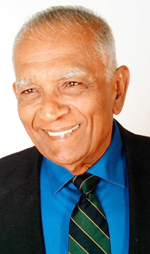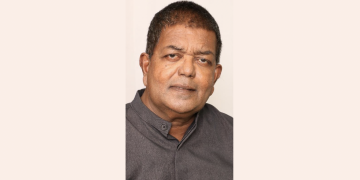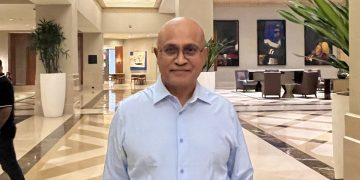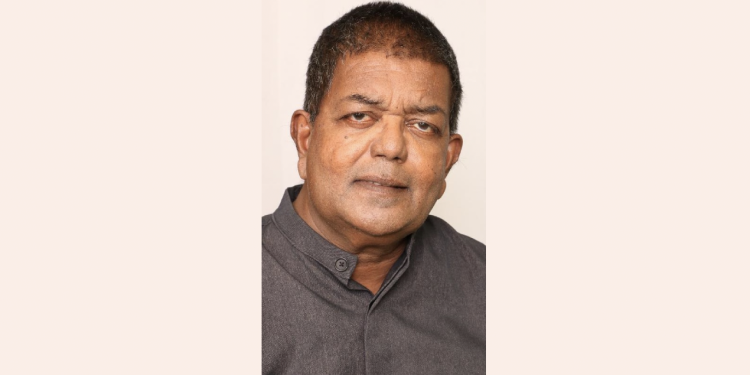I had the pleasure of meeting Nowrang Persaud when I visited Guyana a few years ago with Kumar Mahabir. He was introduced to us by Swami Aksharnanda at SVN College in West Coast. At that time, he was in his 80s and I noticed his his brisk manner of walking.
During that trip Swamiji drove us to his home in Skeldon where we spent a few nights. It was then I learned about his work abroad as a Human Resource expert and his many years of working with the UN that took him to parts of Africa and Asia including India. He also had souvenirs from those countries which he displayed proudly on the walls of his living room.
Nowrang was engaged in developing a cremation site on lands donated by one of the sugar cane estates in Berbice. I was marveled by the commitment of this elderly man taking up such a huge responsibility in what many would call ‘his late stage in life.’
During our conversation, I learned that his first employment was as a teacher at Bharat SevashramSangh College at Cove and John. He recounted that Swami Purnananda came himself and invited him to join to staff for the opening of the school.
I have researched and written a thesis on to role the Bharath Sevashram Sangh had in shaping the early life of Bramachari Hari Ram (Swami Satchitananda) of Trinidad and the work that the Swamis from India later started at Cove and John in Guyana.

The challenges that the school was facing then had deeply hurt him and he felt that he should intervene and have them resolved/
Nowrang also told me that when he was in his late teens, he swam across the Berbice River during Karticwith other boys, thus explaining his fitness in the later years of his life.
Most impressive about Nowrang was his commitment to dharma and improving the welfare of the Hindu community from a young man and throughout his life.It was very rare, at least in Trinidad and Tobago, to have Hindus of the caliber of Nowrang identifying with the trials and tribulations and actively engaged in having them resolved.
Nowrang had authored his autobiography and had sent the manuscript for me to review. It was a story of a young man born in poverty who did not let his social environment hinder his social mobility. His outstanding contribution in the sugar industry was documented at length.
Nowrang was a gentleman, a rare gem that the diaspora would surely miss. What is more painful for me is that we may not be able to replace him, far more surpass him.
Nowrang’s refined manners and speech would remain indelible in mind and a goal not only for me but for all Hindus to aspire towards.
I know that the spirit of Nowrang is not going to leave us but remains a beacon to guide and inspire us to greater heights.
Yours Truly,
Dool Hanomansingh





































































